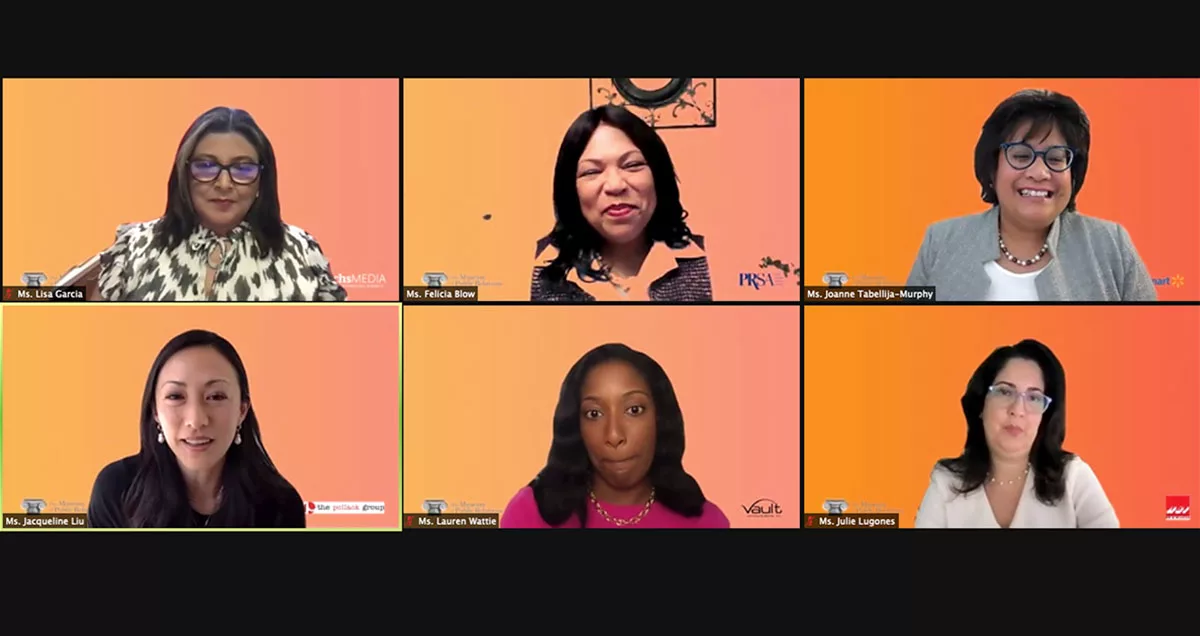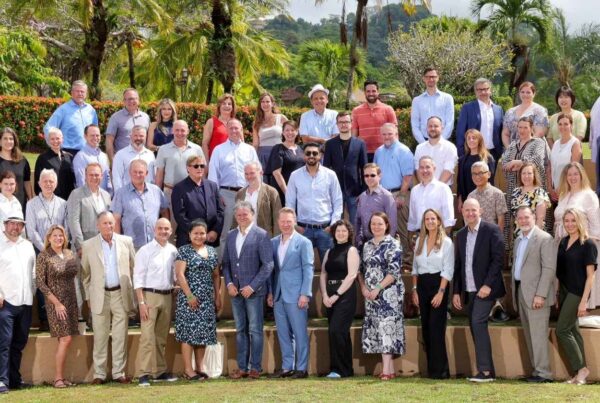By Jesse Shuter
In today’s society, it is critical for aspiring and current communications professionals to know what it takes to navigate a world that doesn’t always foster diversity and inclusion, while also acknowledging how our views of gender and race may affect the workplace. One impactful way to understand this is to hear experiences and insights from highly successful women of color who have forged their own path in the industry.
The Pollack Group’s Vice President, Jackie Liu, was a panelist on a recent webinar titled “Power Women: The Rise of Diverse Women in Communications.” A collaboration between the Worldcom Public Relations Group, the Museum of Public Relations and the Public Relations Society of America (PRSA), the webinar was hosted by Walmart National Director of Corporate Affairs/Constituent Relations Joanna Tabelija-Murphy. Additional panelists included Felicia Blow, chair-elect of PRSA; Julie Lugones, partner at Fusion Communications; Lisa Garcia, partner and COO of Sachs Media; and Lauren Wattie, Vice President of Vault Communications.
The panelists engaged in a comprehensive and powerful discussion, going in-depth on their experiences as women of color in the workplace. Here are some of the key highlights and takeaways.
The Current State of Workplace Equity
One of the most important conversations was around equity for women of all backgrounds in the workforce. The overall sentiment was that while we have made strides, there is still a lot of work to be done.
“Together united we stand, divided we will never accomplish anything,” said Blow, who shared her optimism that the national conversation about equity was becoming more inclusive of diverse women. She pointed to the recent groundswell of support for Meghan Markle, the Duchess of Sussex. While Liu agreed that progress is being made, she noted that the conversation does not yet include all groups. “I don’t think Asian-Americans or Hispanic women are being included in this conversation,” Liu said. “We are all being impacted differently. The nuances are complex, and it isn’t clear why it isn’t fair for all diverse women.”
The conversation on equity extended beyond racial identity. Liu and Wattie made it clear they believe single people, or couples without children, do not face nearly the same types of struggles and responsibilities as working parents, particularly during the pandemic. Still, Wattie did highlight other potential struggles. “Sometimes there is a perception that if you don’t have a child, you can take on extra work and that isn’t fair either,” she said. The panelists also acknowledged that many people serve as caregivers for other family members, which can also be challenging.
Closing the Pay Gap
According to the American Association of University Women (AAUW), women are paid 82 cents for every dollar earned by men. Another major discussion point focused on how we ensure women are paid their full worth. Wattie pointed out the gap itself is not as bad as the lack of transparency in disclosing salaries and emphasized the importance of knowing the salary range at all levels. “Go high and know your self-worth when going for a job. If they don’t value you appropriately, then move on,” Blow added.
Liu further emphasized the importance of educating yourself on what the going rate is, especially for entry-level work, so that you can assess when you are getting underpaid. In her view, starting early and educating people on basic tools and tactics like salary negotiation, are critical. “When you don’t understand the rules of the game, you can’t play the game,” she said.
Advice for the Next Generation
The webinar closed with the panelists providing valuable pieces of advice for young women entering the field of communications.
•. “Lead with empathy and always do the right thing even when no one is watching.” – Lugones
• “Do your homework, and if you’re interested in getting your feet wet, figure out the company’s background and ask those questions.” – Garcia
• “Be an excellent writer. Be an excellent communicator. Work at your craft. Volunteer in ways that give you experience.” – Blow
All of the panelists made it clear that setting boundaries, keeping a level head, and having conversations about appropriate conduct, are all crucial steps to navigating the workplace and confronting issues like microaggressions. Here, Wattie had an important point.
“I think we have to have a certain level of tolerance, but microaggressions do need to be addressed,” she said. “It can be a note or an email. Do what you are comfortable with.”






